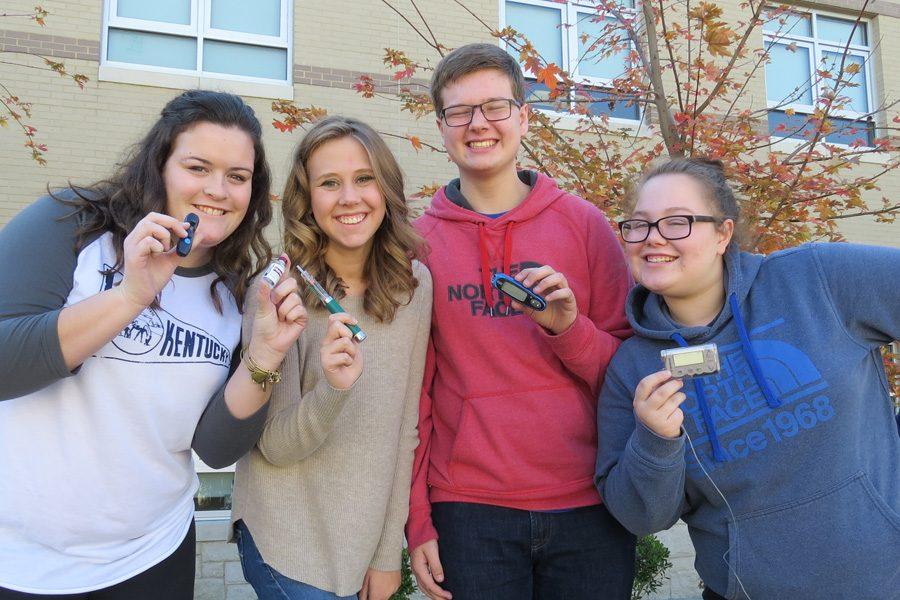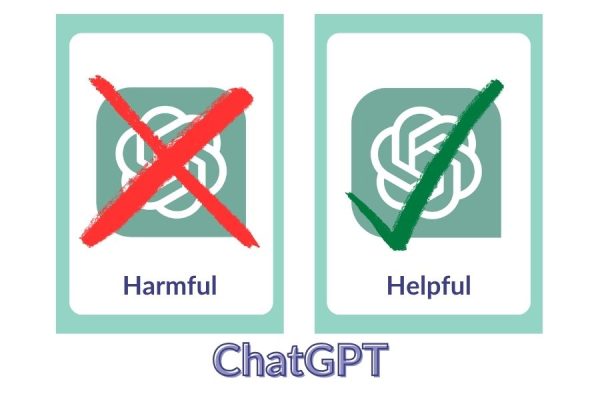A Look Into the Life of a Diabetic
Lauren Palmer, Rebecca Eaves, Thomas Cantrell, and Stephanie Hull pose with their diabetic supplies.

Rebecca Eaves
Staff Writer
In the beginning…
It all made sense. The weight loss, the extreme thirst, the dizzy spells. You don’t think it’s going to happen to you until it does. August 9, 2011, is a day I’ll never forget.
My mom just knew something was off. I was 11 years old and I weighed 54 pounds, almost 30 pounds underweight.
I hadn’t lost my appetite either. If anything I was eating a lot more but I continued to lose weight. I was also constantly drinking water. It wasn’t just a glass or two after playing outside. I was drinking around five glasses of water a night.
With all of that water I was drinking I was using the bathroom more too. I couldn’t take a 20-minute car ride with out needing a bathroom break.
When my mom finally decided to take me to the doctor, within 30 minutes they had a diagnosis. Once we got the call, my mind started racing. I couldn’t stop crying long enough to get my thoughts together. I had no clue what diabetes was and I didn’t know how much my life would change.
My whole family was in shock. No one in my family had type 1 diabetes. I hadn’t shown any signs up until that summer and I was a little older than the average age that kids were diagnosed.
The next day was supposed to be my first day of middle school, but instead of getting assigned a locker, I was assigned a hospital room. When we first checked in I was poked and plugged into different IVs and machines. They ran tests and began explaining everything to my parents.
After the initial shock there were hours of just sitting and waiting. Once we finally saw a doctor, they came in with all these new devices and information. Using it all for the first time was like using alien technology.
When you have type 1 diabetes you have to check your sugar and take shots several times a day. For somebody with an intense and crippling fear of needles, I was not on board. Even though I was scared for the future, I had an outpour of love from my friends and family.
While having diabetes isn’t something I’d choose to have. Sometimes I feel like I’m two steps behind everyone else. It’s not fun having to slow down to check my sugar or eat something to get my sugar up while I watch my friends getting to go on.
When someone finds out I have diabetes they start to ask all these questions and they start making assumptions. Sometimes it feels like diabetes is my identity.
Even though those things get to me sometimes I still feel completely blessed. Being diagnosed with diabetes is nothing compared to what others have to face.
Type 1 diabetes is manageable and you can have a long and fulfilling life if you take care of yourself. Diabetes doesn’t define my life but it is a huge part of who I am.
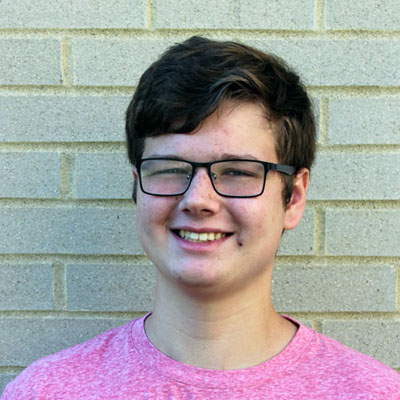
Thomas Cantrell
Assoc. Viewpoints Editor
The completely different life of a diabetic
I wake up early in the morning, get dressed, and eat breakfast. After that, I brush my teeth, grab my backpack and leave for school.
As I ready myself for the day ahead, I can’t help but think how obvious it is. Everyone around me must notice my disease. They know that I have diabetes.
Then again, they probably don’t notice because I’m no different than any other kid my age. I go to school, socialize with friends, and can even play sports just like any other student. I seem like an average teenager because I’ve learned how to manage my disease.
I was diagnosed with diabetes when I was three years old. Because I was diagnosed at such a young age, I grew up incorporating my disease into my life. I organized a routine. Despite the small differences, my life was unchanged.
Controlling my diabetes isn’t a one-man job. My parents are essential to my experience. I couldn’t handle it without them. They purchase the countless number of different supplies I need and constantly remind me to check my blood and take my injections in case I ever forget. I also meet with my doctor several times a year in order to review how well I’m doing and he makes recommendations for me to further improve.
Keeping my blood sugar in control is important because allowing it to be out of control is very dangerous to my health. Controlling this disease isn’t easy. It’s actually very difficult at times. Thankfully, I have such a good amount of support.
I hear stories of other people with diabetes losing one of their feet or suffering from nerve damage from their unmanaged diabetes, and I take it as even more motivation to make sure that I’m the best diabetic I can be.
As long as I take care of myself, I know that everything will be okay. To stay healthy, I need to be responsible. The only thing between me and being like anyone else, is putting in the effort to maintain my blood sugar. Diabetes affects my pancreas, but it doesn’t affect my life.

Lauren Palmer
Advertising Representative
Diabesties for life
Through the 6,000 shots, 15,000 finger pricks, and many sleepless nights, relationships have emerged, unbreakable by the trials and tribulations of diabetes.
Having diabetes can be rough but having friends that know how you feel can help lessen your pains.
Diabetic Camp, aka Camp Korelitz, is a week-long summer camp in Cincinnati. Camp Korelitz is just like any other camp but has doctors and nurses to make sure everyone is safe.
Camp Korelitz gives 150 diabetics a chance to form life-long friendships. After attending Korelitz for five years, the friendships I have made are amazing. I finally got the chance to meet people my age who go through the same exact things I do every day. Apart from Korelitz, I have also made friendships with the other diabetics in my school and community.
Having these friends at school makes life easier when my friends from camp are out of reach. Having diabetes has given us a connection that we don’t have with other peers and has given us unique relationships.
After my diagnoses when I was 11, I felt alone. But after meeting other diabetics at school and discovering camp, I knew I wasn’t the only one fighting this disease.
I knew if I had a problem, I had many people I could go to for advice. One of the trials of diabetes is having the will to take yet another shot, but these diabetic friends, can inspire you to keep pushing and to stay healthy.
Diabetes has opened up a whole new world of people for me to meet. Beyond all the tough things of diabetes has blossomed such great relationships that I will forever be grateful for.
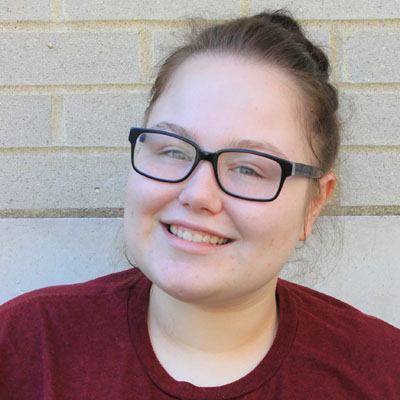
Stephanie Hull
Staff Writer
The future of diabetes
The days of finger pricking, taking shots, and lugging around sizable bags of supplies are nearing an end for diabetics. As every moment passes more and more diabetic technology is arising, making daily life for diabetics smoother.
No longer do diabetics have to handwrite every blue sugar and insulin bolus. Apps for smartphones, such as One Drop, give diabetics the opportunity to connect their blood glucose meters to their phones.
This allows for easier number logging, faster communications with doctors, and more efficiency and flexibility in managing their diabetes.
When I turned 10 my family and I made the decision to convert me from Insulin shots to an Insulin pump.
Pumps are an alternative to shots, allowing me and all diabetics who chose to use one, the opportunity to practically imitate an actual pancreas. This small device gives diabetics a constant dosage of Insulin throughout their day to allow better blood sugar management.
When diabetics with pumps eat carbs they simply put in the amount and their pump gives them the insulin they need. However, recent advancements have made the pump resemble a pancreas even more. When a diabetic’s blood glucose drops, these insulin pumps can sense it and slow or stop the amount of Insulin the diabetic is getting.
When the typical person leaves their home they usually bring their phone, keys, and maybe a little money.
When I leave, whether it be for half an hour or several days, I pack an array of diabetes supplies. A pouch for my meter, extra pump supplies, or in some diabetics cases: insulin shots, snacks, and a glucagon shot that helps with emergency low blood sugars.
New advancements are allowing for more compact packaging giving diabetics the option to travel more efficiently. Glucose meters, now the size of half an iPhone, have been designed with compartments to store the materials used to test blood sugars. The bulky glucagon shot is being reduced to a small powder, and insulin shots are being designed to take up less space but still hold a large amount of insulin.
While diabetes can be a handful, new technology is definitely lessening the burden it has on diabetics. At the rate at which things are progressing we are hopefully nearing an over all cure for diabetes soon.
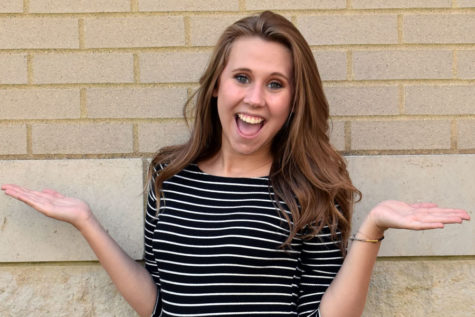
Rebecca Eaves is a Senior and second-year Smoke Signals member. She watches the TV show Friends on repeat and loves the color blush pink.
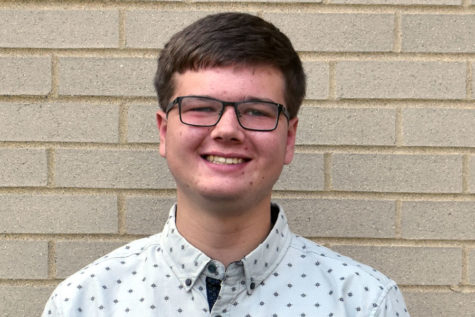
Thomas Cantrell is a Senior and second-year Smoke Signals member. He likes watching Parks & Rec over any other TV show and chooses purple as his favorite color.
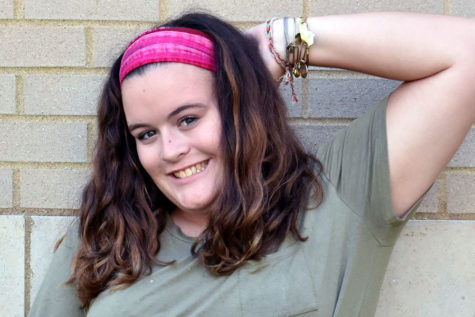
Lauren Palmer is a Senior and second-year Smoke Signals member. Her favorite TV show is How I Met Your Mother and she loves the color white.

Stephanie Hull is a Junior and first-year Smoke Signals member. She can eat some chicken nuggets from time to time and loves the Smashmouth hit "All Star."
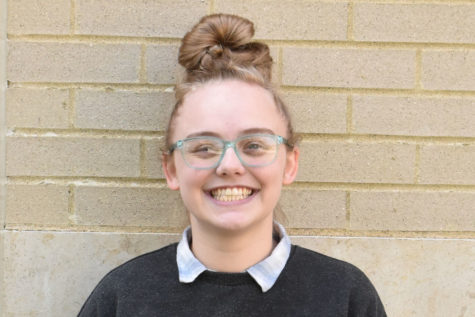
Makenzie Dummitt is a Senior and second-year Smoke Signals member. She loves watching the cartoon Bob's Burgers and says blue is her favorite color.


